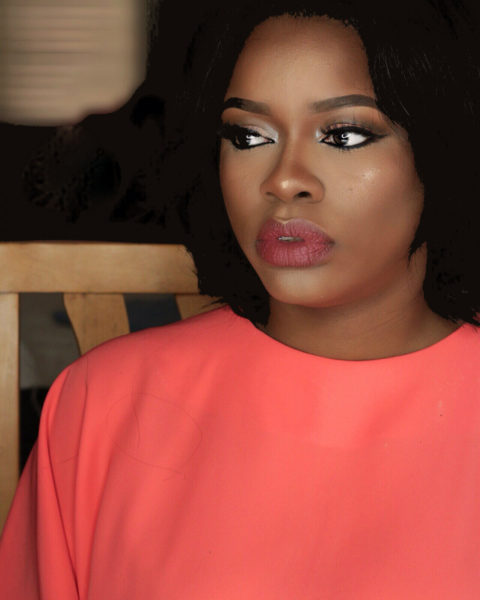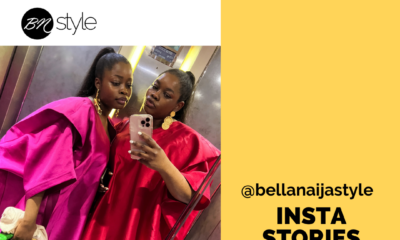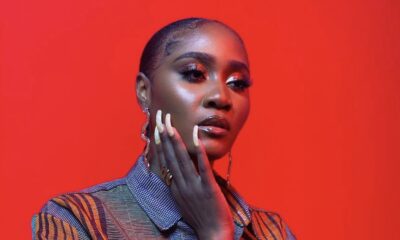Career
Fashion Business Basics with Isoken: Here’s Why You Really Need a Business Plan As Well as a Working Business Model
 Fashion Business Basics is a 6-part series by fashion entrepreneur with Isoken Ogiemwonyi, which will feature on BellaNaija. You may recall BN featured Isoken and her partner in the BN Making It series, back in 2011. Since then, she has gone on to achieve even greater feats, making her mark firmly in the fashion industry in Nigeria. We hope that aspiring fashion entrepreneurs will benefit from this series. Click here to read the first part.
Fashion Business Basics is a 6-part series by fashion entrepreneur with Isoken Ogiemwonyi, which will feature on BellaNaija. You may recall BN featured Isoken and her partner in the BN Making It series, back in 2011. Since then, she has gone on to achieve even greater feats, making her mark firmly in the fashion industry in Nigeria. We hope that aspiring fashion entrepreneurs will benefit from this series. Click here to read the first part.
****
So you’ve decided where you fit in in the fashion value chain and you’re taking the plunge. What’s next? Most business people will say – a business plan .
This will probably come across as a little controversial but – I don’t believe in business plans.
Don’t get me wrong – business plans definitely have their place. For example, if you have proof of concept and you’re trying to raise money – debt or equity. A business plan is necessary for articulating your ideas to someone other than yourself – as well as a good referral point in order to track progress at different intervals.
Let me explain.
I’m not saying you should wing it; however, clarity on what you are trying to achieve, being cost conscious/spending on the right things (fashion is notoriously capital intensive, and almost all of the money is spent ahead of launch) and the ability to be agile in a fast-paced marketplace is more easily achievable with a business model. Getting that model right is a task, in and of itself.
As a starting point, I find a full blown business plan to be a monumental waste of time. Here’s my rationale –
Lara is done with fashion school. She’s super excited about starting her fashion label. She has about NGN 1 000 000 in startup capital from working part time and saving, as well as generous donations from family who believe in her dream. Now, conventional wisdom dictates that she start with a business plan delineating her vision, marketing plan, competitor analysis, market analysis, operational plan etc. She spends about three months doing this – with the help of a highly recommended SME Consultant (this sets her back about NGN 200,000, but she deems it a worthy investment).
She’s finally ready to take the fashion world by storm. She begins producing her first collection, spends about NGN 300 000 producing 25 samples from very high quality fabric, another NGN150 000 on a look book to show her collection and sends it to Bella Naija Style. She puts together a small fashion show to ‘launch’ her collection for 300000. She’s now down to her last NGN 50 000.
She’s not worried; why should she be? She has a rock solid business plan, that shows that this is all necessary expenditure, and as she is trying to be an ‘asoebi’ designer, with a mostly bespoke clientele, once she ‘puts herself out there’ the orders will start to roll in.
She launches … to crickets.
1 week goes by… and another … and another.
She gets by with small ‘asoebi’ orders from her friends and family – but she can’t charge very much as she is using contract tailors and essentially her friends are doing her a ‘favour’ by giving her custom.
A year goes by, and she gives up and gets a 9-5. Fashion is hard. Another young brand – dead in the water.
Conversely, Bolaji has about NGN 200,000 in savings. She knows there’s no margin for error. She writes down her main goals. She wants to be a ready-to-wear designer, stocked in two or three places in Nigeria, with a view to exporting eventually. However, that’s the big picture dream. She starts off running up a few pieces for herself on her home sewing machine in relatively inexpensive fabric, spending about NGN 10,000 on fabric – she’s decided she’ll be her own test case. A few events and Instagram posts later, 2 out of 5 of these ‘test’ pieces garner quite a bit of attention. So she finds a reasonably priced contract tailor to run up these styles in a few sizes and multiple colour ways. This sets her back about a 60,000. She then invests another NGN 40 000 in bags from Printivo and brand labels. she understands it’s important to ‘present’ a certain way. She keeps her marketing focus on Instagram, and gifts a few influencers to get her brand recognition. She consistently takes part in low-cost, high impact ‘fairs’ and shopping events, tweaking her growing product range. The direct consumer feedback helps her learn what works where and what doesn’t work at all. Before long, she has tripled her initial investment, without completely depleting her capital base. A year later, she’s grown enough (organically) to fit out a small production studio, averaging 120 units a month and stocking ZAZAII in VI and Grey Velvet Lekki.
These are obviously very extreme scenarios, and is a vast over simplification of the problem(s). Lara could’ve gotten friends or family to help with a plan, and Bolaji could’ve gotten overconfident with her numbers and bombed as well. Most use cases will be somewhere in the middle. My point is – a business plan tends to be static and an over reliance on it and the assumptions therein can be disastrous. A model, however, is more dynamic and will give you the ability to review and compare . It’s also far less likely that you’ll fall in love with your idea to the exclusion of evidence to the contrary.
I am by no means saying you should be completely planless. This is where a business model comes in. In the latter scenario, simple vision statements and investing in key know it’s a cliche but you have to start small, or as the tech community puts it – start lean.
There’s no fool-proof way to start, but investing in the right things, and understanding that a fancy powerpoint and empty rhetoric does not a business make – goes a long way.
*PS: note that these startup cases did not take into account the more globally recognised route to market of going through a manufacturer, taking wholesale orders, drop shipping etc, simply because I am writing about the Nigerian experience. Not that these do not exist at all, they are simply not the norm.

























